Save Our NHS March, London, 2017. On 4th March many thousands marched through London from Tavistock Square where the BMA have their headquarters to a rally in Parliament Square in protest against the cuts and privatisation of the NHS.
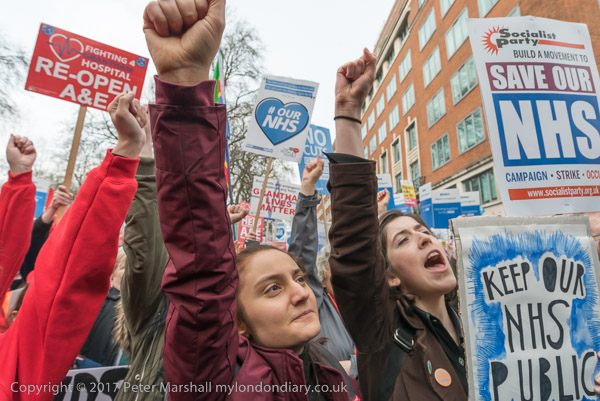
The Conservative Party were against the formation of the NHS from the start, and voted against both the Second and Third readings of the National Health Service Bill in the House of Commons in 1946.
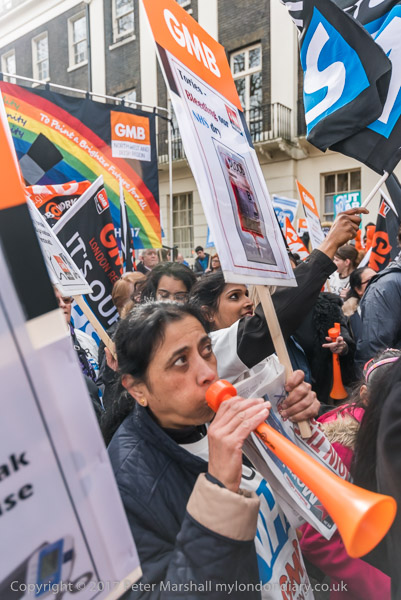
The formation of a public state heath service had been advocated by Beatrice Webb as early as 1909, and the idea of a free, comprehensive and universal health provision had been gaining public support over the years, becoming official Labour policy under George Lansbury in 1934. By 1942 even the British Medical Association had proposed having regional councils running hospitals with consultants as paid staff, although they opposed the 1946 bill as they though doctors would lose money under the NHS.
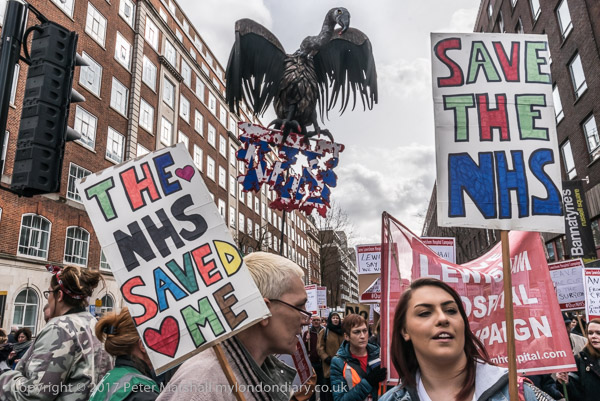
But it was the 1942 report by William Beveridge, Social Insurance and Allied Services, that put the NHS firmly on the political agenda, with even Tory Prime Minister Winston Churchill suggesting in 1943 it would be a part of the rebuilding of Britain after the war, and both Liberals and Conservatives supporting consultations with doctors and others that resulted in a 1944 White Paper, ‘A National Health Service’.
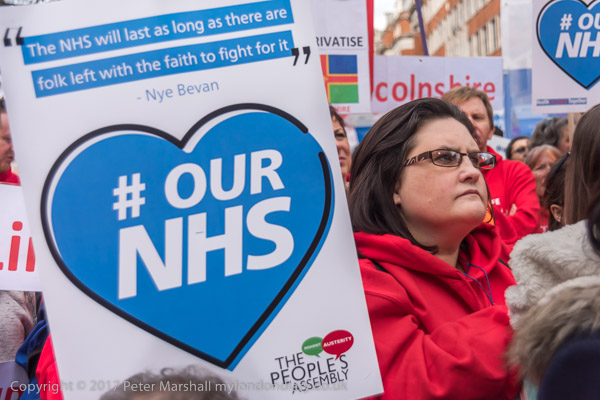
When Labour’s Health Minister Aneurin Bevan put his National Health Service Bill to parliament in 1946, there was general agreement on the idea of a comprehensive health service, but the Tories were opposed to doctors becoming full-time employees and thus being unable to continue in hugely lucrative private practice. And the BMA shared their position, continuing their opposition after the Act was passed and eventually were able to force Bevan to amend the act and remove the introduction of a salaried service for GPs.

So, although it was a great day when the NHS came into being on 5th July 1948, and was from the start a little hamstrung by commercial interests – in this case of individual doctors. Dentistry has never been properly integrated into the system, and many find it impossible to get NHS dental treatment as relatively few dentists are prepared to work at the rates offered by the NHS. Even for those who are able to get registered as NHS patients, their are fees which for those not qualifying for exemption can be prohibitive despite being subsidised by the NHS.
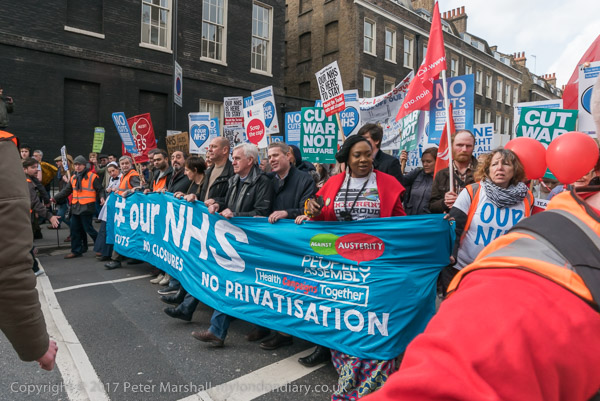
It was a Labour government that proposed the idea of prescription charges in a 1949 Act, prompting the resignation of Aneurin Bevan from the Labour government, but it was a Conservative Government that introduced them in 1952. They were abolished under Labour by Harold Wilson in 1965 but he brought them back in 1968 though with significant exemptions based on age, income and medical conditions. Wales, Nothern Ireland and Scotland have now abolished charges, but in England each item now costs £9.35.
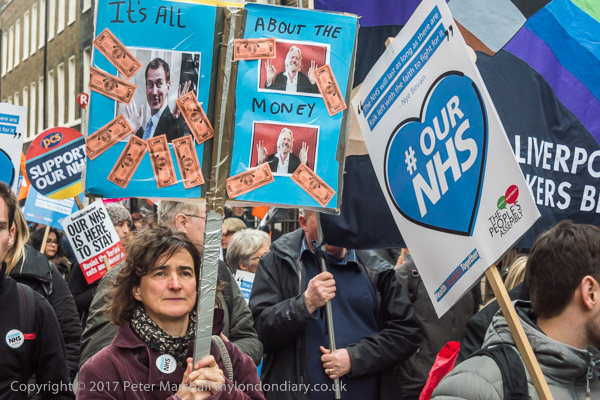
Since the 1990s many politicians, particularly Tories but also some of the leading figures in the New Labour government and on the right of the party have backed changing from the current universal system to a personal insurance-based system, and there has also been a huge increase in those taking out private insurance, with now around 4 million having this, mainly through the companies they work for.
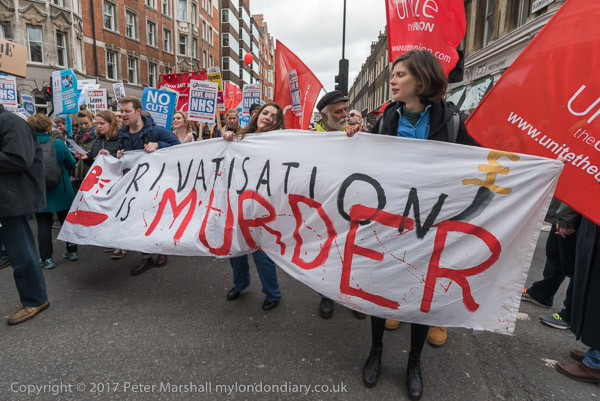
Healthcare is now a massive industry in the UK, enabling the wealthy to avoid delays in receiving treatment in the underfunded NHS. The NHS also massively funds the private system, with some private healthcare providers receiving as much as 80% of their income for providing services to NHS patients. Some NHS hospitals also get in on the act by offering private care.
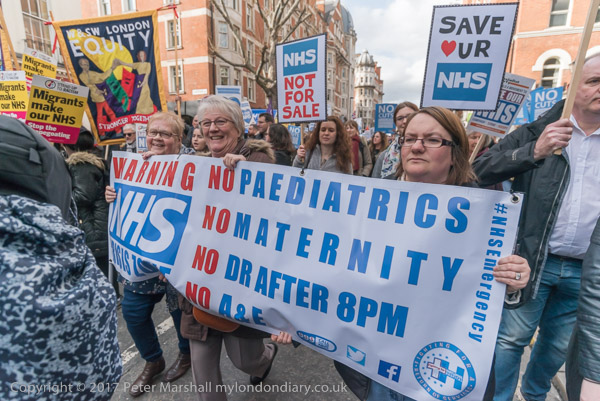
Many of the more routine services provided by the NHS have now been outsourced to private providers and over the years various changes in the way the NHS works have meant more and more has to be made available for tender by outside bodies. In some cases the level of services provided has been extremely poor – when I was in one hospital the outsourced cleaners had insufficient time to clean the floor under the beds, and accidentally putting down my hand I found a dirty dressing and a used needle from a previous occupant. Probably such outsourcing was a significant cause of various hospital-acquired infections.
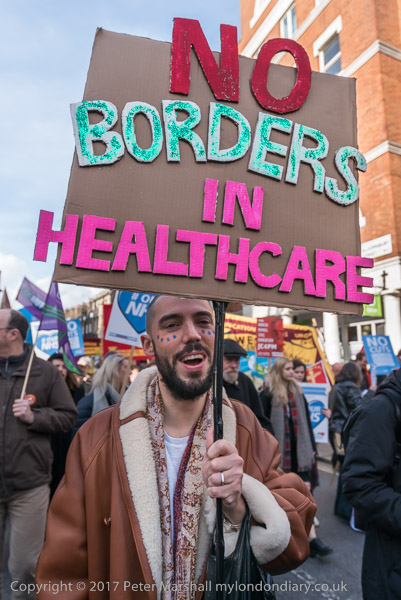
But much private medicine is of a high standard – using the same surgeons and consultants others expensively trained by the NHS who work both for the NHS and private hospitals. The best private hospitals will have more equipment and more up-to-date equipment than the NHS hospitals that have suffered from years of cuts, and will also provide better conditions for their patients, with private rooms and more.
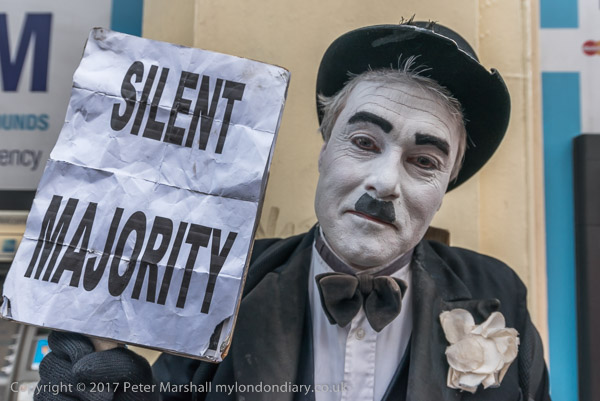
Having a two-tier system which is rapidly growing means that politicians, themselves wealthy and overwhelmingly representing the interests of the better off, and the more vocal wealthier groups in society, as well of course as the well-paid lobbyists for private health, are less likely to provide the NHS with the funding it needs to provide modern healthcare.
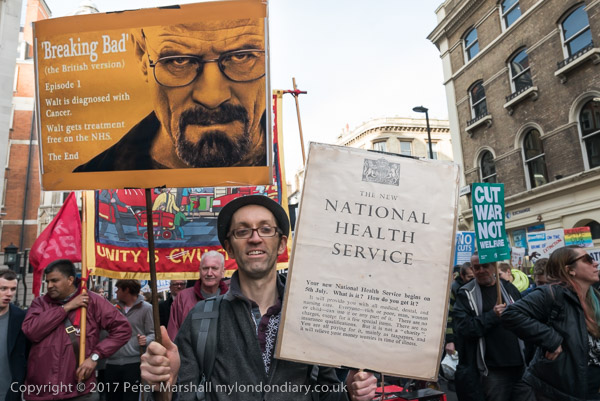
Many believe that our NHS is under threat, slowly and step by step being sold off to private healthcare companies, many based in the US, and that before long the NHS will be a name only, a branding used by private companies (as in many areas it already is.) The country is slowly being prepared for a complete move to an insurance based system, which will be brought in by politicians – Labour or Conservative- still chanting the mantra ‘The NHS is safe in our hands‘.
More at Save our NHS March.